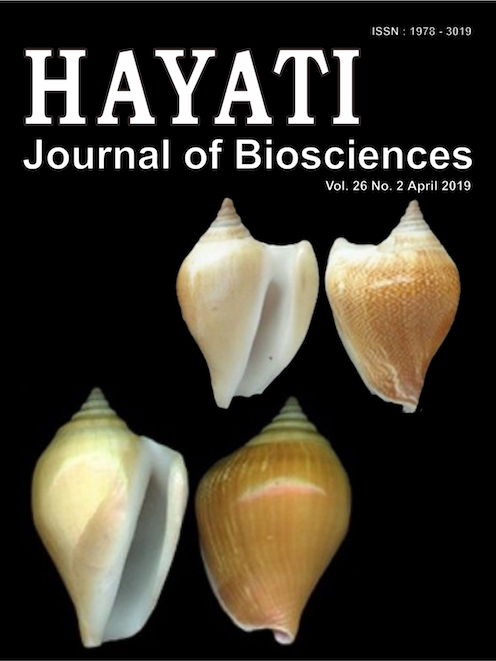In vitro and In vivo Antiplasmodial of Stem Bark Extract of Garcinia husor
Abstract
Garcinia husor is one of the folk medicines in Maluku-Indonesia. This species has been used for the treatmet of Malaria disease. The phytochemical contents and antiplasmodial activity not reported yet. In this study we evaluated the quantitative phytochemicals, in vitro and in vivo antiplasmodial activity of stem bark ethyl acetate extract. In vitro assay was done using P. falciparum 3D7 strain sensitive of chloroquine. For in vivo analysis, four groups of M. musculus were infected by P. berghei and their parasitemia levels were for 7 days of treatment with ethyl acetate extract; hematological and biochemical parameter were analyzed at the end of experiment. The result showed ethyl acetate extract with the TPC (169.47 mg GAE/100 g ±0.61) and TPC (167.37 mg QE/100 g ±1.05) was active against P. falciparum 3D7 strain (IC50 value of 0.31±0.43 μg/ml). The animal treated with extract showed suppression of parasitemia to 87.57±1.41% compared with the P. berghei infected-mice (negative control), ED50 value of 22.30 mg/kg BW. The dose of extract in 200 mg/kg BW was reduce parasitemia of infected mice with P. berghei more potential. The ethyl acetate of the stem bark G. husor with has antiplasmodial properties and future investigation are necessary to elucidate its mechanism of action.Downloads
HAYATI J Biosci is an open access journal and the article's license is CC-BY-NC. This license lets others distribute, remix, tweak, and build upon author's work, as long as they credit the original creation. Authors retain copyright and grant the journal/publisher non exclusive publishing rights with the work simultaneously licensed under a https://creativecommons.org/

























.png) IPB University
IPB University Department of Biology
Department of Biology The Indonesian Biological Society
The Indonesian Biological Society 

